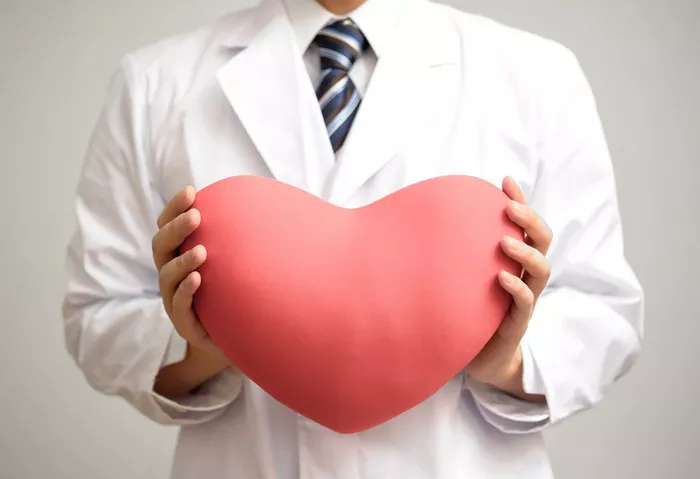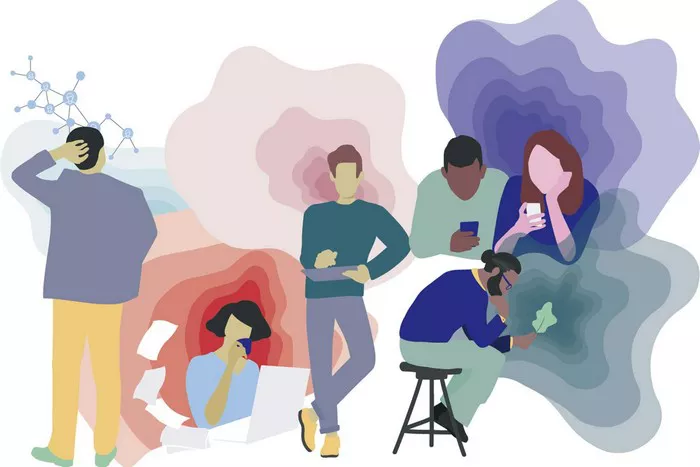Hallucinations, often depicted in popular culture as eerie or supernatural experiences, are in reality a symptom of various mental health conditions. The human mind is a complex entity, and disturbances within its intricate workings can manifest in a myriad of ways, including perceptual distortions such as hallucinations. In this comprehensive exploration, we delve into the intricate relationship between mental illness and hallucinations, shedding light on the underlying mechanisms and the conditions that may give rise to such phenomena.
I. Defining Hallucinations
Before delving into the specifics of mental illness, it is crucial to establish a clear understanding of what hallucinations entail. Hallucinations are sensory perceptions that occur in the absence of external stimuli. They can manifest across different sensory modalities, including auditory, visual, olfactory, gustatory, and tactile. While hallucinations are often associated with psychosis, they can also occur in individuals without underlying psychiatric disorders, such as during certain stages of sleep or as a result of substance use.
II. Psychotic Disorders and Hallucinations
One of the most prominent associations between mental illness and hallucinations is observed in psychotic disorders. Schizophrenia, schizoaffective disorder, and delusional disorder are among the conditions characterized by psychosis, which often entails hallucinations as a core symptom.
Schizophrenia: This chronic and severe mental disorder is marked by a combination of symptoms, including hallucinations, delusions, disorganized thinking, and impaired cognitive function. Auditory hallucinations, such as hearing voices that are not present, are particularly common in individuals with schizophrenia. These hallucinations can be distressing and disruptive, contributing to the overall impairment in daily functioning experienced by affected individuals.
Schizoaffective Disorder: Combining features of both schizophrenia and mood disorders, schizoaffective disorder is characterized by episodes of psychosis alongside prominent mood symptoms. Hallucinations in schizoaffective disorder may occur in conjunction with manic, depressive, or mixed episodes, adding complexity to the clinical presentation and treatment approach.
Delusional Disorder: While hallucinations are not as prevalent in delusional disorder compared to schizophrenia, individuals with this condition may experience hallucinations that are consistent with their fixed, false beliefs (delusions). These hallucinations often serve to reinforce the individual’s delusional thinking, contributing to the maintenance of their distorted perception of reality.
III. Mood Disorders and Hallucinations
While mood disorders such as depression and bipolar disorder are primarily characterized by disturbances in mood, they can also be accompanied by hallucinations, albeit less frequently than in psychotic disorders.
Bipolar Disorder: In the manic phase of bipolar disorder, individuals may experience hallucinations, often of a grandiose or euphoric nature. These hallucinations can contribute to the heightened sense of energy and inflated self-esteem characteristic of manic episodes. Additionally, psychotic features may emerge during severe depressive episodes in bipolar disorder, further exacerbating the risk of hallucinations.
Major Depressive Disorder: Although less common than in bipolar disorder, hallucinations can occur in the context of severe depressive episodes. These hallucinations may take the form of auditory or visual experiences that reflect the individual’s internal distress and negative self-perception. Suicidal ideation and hallucinations commanding self-harm are particularly concerning manifestations of depression requiring immediate intervention.
IV. Substance-Induced and Medical Conditions
In addition to psychiatric disorders, hallucinations can also arise secondary to substance use, withdrawal, or medical conditions affecting the brain.
Substance-Induced Hallucinations: Various substances, including hallucinogens, stimulants, and certain prescription medications, can induce hallucinations as a direct pharmacological effect. Hallucinogenic substances such as LSD and psilocybin are notorious for their ability to elicit profound alterations in perception, often accompanied by vivid hallucinations. Stimulant-induced psychosis, observed in individuals abusing substances like methamphetamine or cocaine, can also feature hallucinations as part of the clinical presentation.
Withdrawal Syndromes: Abrupt cessation of substances such as alcohol, benzodiazepines, or opioids can precipitate withdrawal syndromes characterized by hallucinations. Alcohol withdrawal, in particular, is associated with delirium tremens, a severe form of withdrawal syndrome marked by hallucinations, tremors, and autonomic instability. These hallucinations may be visual or auditory in nature and can pose significant risks to the individual’s safety if not managed promptly and effectively.
Neurological and Medical Conditions: Hallucinations can occur in the context of various neurological conditions, including epilepsy, brain tumors, and neurodegenerative diseases such as Parkinson’s disease and Lewy body dementia. In these cases, hallucinations may arise due to structural abnormalities or neurochemical imbalances within the brain, highlighting the diverse etiological factors contributing to perceptual disturbances.
V. Trauma and Dissociative Disorders
Experiences of trauma, particularly during childhood, can have profound effects on psychological functioning and may predispose individuals to develop dissociative symptoms, including hallucinations.
Post-Traumatic Stress Disorder (PTSD): Individuals with PTSD may experience hallucinations as part of their re-experiencing symptoms, which involve intrusive memories, flashbacks, and nightmares related to the traumatic event. These hallucinations can evoke intense emotional distress and contribute to the individual’s sense of being overwhelmed by the traumatic memories.
Dissociative Disorders: Dissociative identity disorder (DID) and other dissociative disorders involve disruptions in consciousness, memory, and identity, which can sometimes manifest as hallucinations. Alters, or distinct personality states within DID, may experience hallucinations independently of the individual’s primary identity, reflecting the complexity of dissociative phenomena and their impact on perceptual experiences.
VI. Neurodevelopmental Disorders
Certain neurodevelopmental disorders, characterized by atypical brain development and functioning, may also be associated with hallucinations.
Autism Spectrum Disorder (ASD): While hallucinations are not considered a core feature of ASD, some individuals with autism may experience sensory perceptions that others do not perceive, leading to misinterpretations or experiences that resemble hallucinations. These sensory sensitivities can contribute to the individual’s challenges in processing and integrating sensory information, highlighting the importance of tailored interventions and support.
Attention-Deficit/Hyperactivity Disorder (ADHD): Although less commonly associated with hallucinations compared to other conditions, individuals with ADHD may experience sensory distortions or vivid daydreams that border on hallucinatory experiences. These phenomena may be linked to difficulties in attention regulation and executive functioning, emphasizing the multifaceted nature of neurodevelopmental disorders and their impact on perceptual processing.
VII. Conclusion
In summary, hallucinations represent a complex symptom that can arise in the context of various mental health conditions, substance use, trauma, and neurological disorders. Understanding the interplay between these factors is essential for accurate diagnosis, formulation of appropriate treatment plans, and provision of comprehensive support to affected individuals. By recognizing hallucinations as a manifestation of underlying disturbances in brain function and psychological processing, mental health professionals can strive to address the diverse needs of individuals experiencing these challenging symptoms, promoting recovery, and improved quality of life.
[inline_related_posts title=”You Might Be Interested In” title_align=”left” style=”list” number=”6″ align=”none” ids=”5924,4335,4333″ by=”categories” orderby=”rand” order=”DESC” hide_thumb=”no” thumb_right=”no” views=”no” date=”yes” grid_columns=”2″ post_type=”” tax=””]
































